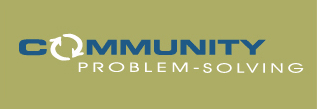Implementing Together (Co-Producing Solutions)
This section currently has two strategy tools plus web links.
 |
| Partnerships are great--except when they're not. Partnerships or strategic alliances allow us to tackle hard problems together and, when things go well, to "co-produce" solutions that no one party could produce on its own. Useful partners may bring money, materials, expertise, relationships, reputation, and other resources to help us accomplish things that matter to us--and, ideally, to our partners as well. Unfortunately, much available advice either celebrates partnership uncritically or focuses on just a small part of the landscape. The "Perfect Fit" tool shows how to ask--and answer--the four strategic questions that make or break partnerships. |
Click here to download this strategy tool
To view or print this tool, you'll need Acrobat Reader. Click here:
 |
 |
| Intermediaries or "go-betweens" are increasingly important in social problem-solving--but not well understood. Intermediaries are people and institutions that add value to the world indirectly, by connecting and supoprting--i.e., by helping others to be more effective. Intermediaries may act as facilitators, public educators, capacity builders, social investors who pool money and other resources, performance managers, coalition builders, and organizers of new stakeholder groups. Attention to the valuable functions of go-betweens has increased in the past decade as demand grows for new forms of civic capacity in communities around the globe. But so far, there has been little concrete advice available about when intermediaries are needed, why they place some roles and not others in particular communities, how they should balance accountability to "many masters" and avoid abusing their broker's role, and how the most valuable roles of these go-betweens should be defined at particular points in time. The "Working the Middle" tool shows how intermediaries (and everyone else) can make the most of their special abilities. |
Click here to download this strategy tool
To view or print this tool, you'll need Acrobat Reader. Click here:
 | LinksAn asterisk (*) indicates a web resource with primarily U.S.-based or focused content. Other sites are more international in scope.
1. Management and Organization (general)
* Milano Information Exchange (MiX). "Strengthening organizations that revitalize communities." A collaboration of the Living Cities initiative and the Milano Graduate School, New School University.
* Bridgespan Group (Insights, trends, and tools section). Implementing community change strategies, business planning for nonprofits, nonprofit franchising. Public management links
Hauser Center for Nonprofit Organizations (Harvard) 2. Alliances: Overviews and Resource ListsCollaboration Resource List
Center for Collaborative Leadership
Center for Collaborative Policy (including Collaborative Edge newsletter) Community Toolbox *National Network for Collaboration
*Collaborative Communities (article) *Collaborative Communities Network (Together We Can), including bibliography *Inter-agency collaboration (for service delivery). Keywords: co-location, one-stop systems, coordination, streamlining *Collaboration Handbook (Wilder Foundation) *National Network for Collaboration Technology Supports for Collaboration (article) Collaboration Research and Development (articles) 3. Alliances: Business-focused
Useful for honing your thinking about producing results together ... even if you're not facing a "business" problem. Strategic Alliance Research List Strategic Alliance ProfessionalsMany issue-specific partnership (and other management and implementation) references are under Program Tools (at this website), for example in economic development, education, community health, and other areas. | 
